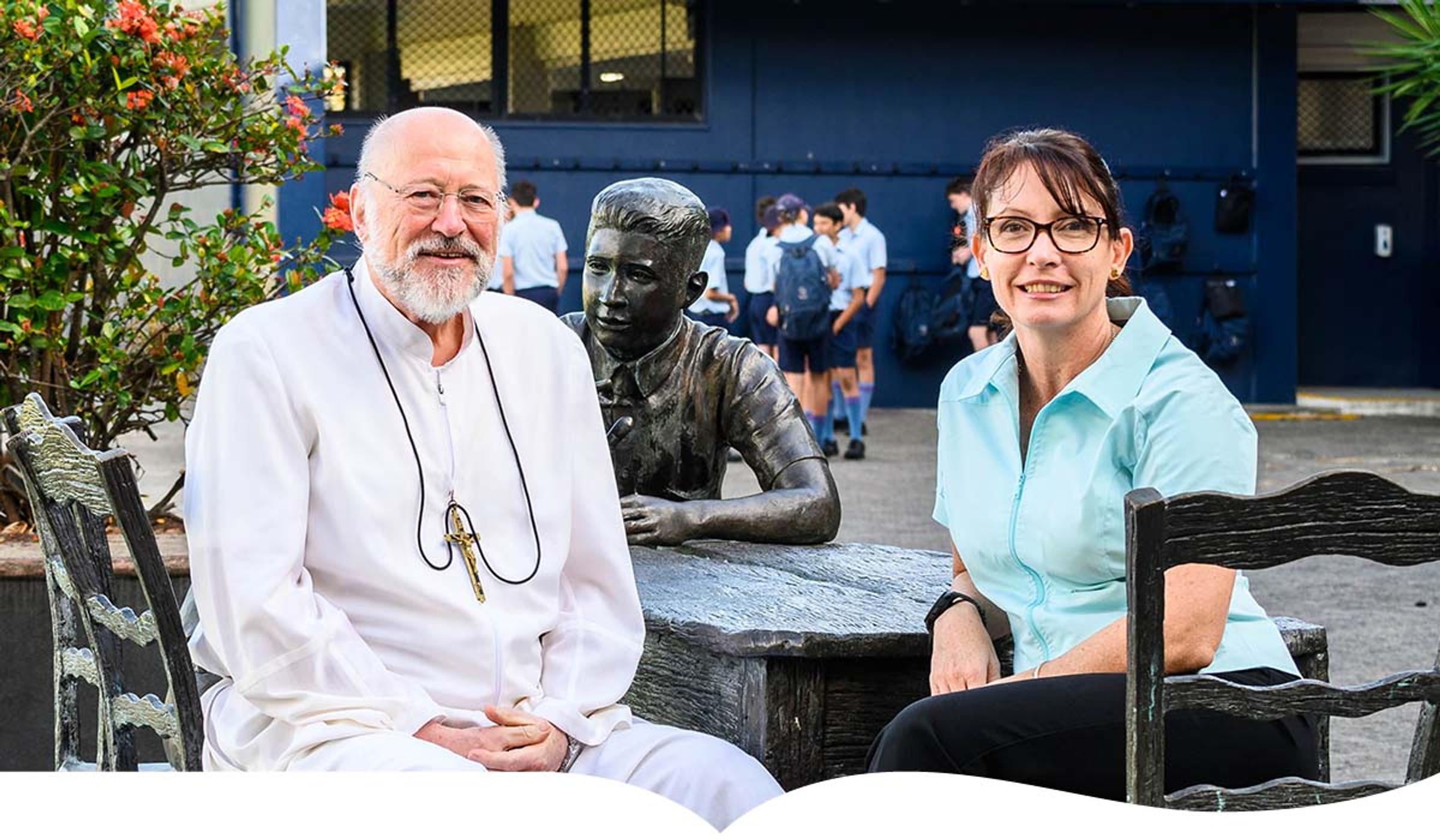COUNSELLING CONNECTIONS
News from College Counsellors Br Roger Vallance FMS &
Mrs Marijke Keller

COUNSELLING CONNECTIONS
News from College Counsellors Br Roger Vallance FMS &
Mrs Marijke Keller


Mental Health Month
October is Mental Health Month across Australia, and last Tuesday 10 October was Mental Health Day. So this newsletter, more than any other, tries to offer support and encouragement for parents who are doing their best to support mental health in their homes. Mental Health week in Queensland started on 7 October and ends on Monday 15 October.


Many would argue that mental health is a universal right, yet even in Australian society some struggle to access appropriate help. This article offers a world perspective as well as signs of a loved one needing help and sources of help available.
Positive Parenting
The Hopeful Institute has an excellent couple of tools for parents on Positive Parenting. These tools include: "7 evidence-based parenting tips", "how to parent a tough teen" and "5 tips for positive parenting". Included is the option of downloading a book of further helpful resources.
Just quickly – if you are concerned about a tertiary student who is not coping, this article may help!


Vaping
We all know that there is a dichotomy in our society regarding vaping. While vaping is commonly seen on the streets, it is also illegal to sell vapes to children. There is disagreement across the social spectrum of the level of harm induced by vaping and much misinformation across Google-assisted websites promoting these habits and products.
Vaping is a complex topic. There remains debate within the public health community around how to minimise the risks of vaping balanced against the potential for vaping to reduce harm for current tobacco smokers.
Vaping on college premises is contrary to college rules and expectations. Click here for clear, evidence-based advice on medical and social issues for young people.


Rethinking Stress
Are you - or your sons and daughters - stressed about being stressed? It turns out stress isn’t always a bad thing. It can also be our ally. This term can be a challenge especially for our senior students.
When most of us think about stress, the association is that it’s bad and therefore needs to be eliminated. But, have you ever noticed that you perform better when you are a tad nervous? The stress response is a hard-wired biological mechanism designed to get you into action.
It turns out that you need a certain amount of stress to perform whether that performance involves writing an email, running a race, sitting an exam or navigating through traffic. In psychology, this link between arousal (stress) and performance is known as the Yerkes-Dodson Law.
Optimising Stress
“The ultimate goal of those studying stress is not to "cure" us of it, but to optimise it.” – Robert Sapolsky, Stanford University neurobiologist (2015)
The relationship between stress and performance was described more than a century ago by psychologists Robert Yerkes and John Dillingham Dodson (Yerkes & Dodson, 1908). They discovered that mild electrical shocks (stressors) could motivate rats to complete a maze, but that when the intensity of the shocks was increased, the rats would move about randomly trying to escape. What this means is that increased arousal can improve performance, but only up to a certain point. When arousal becomes excessive, performance diminishes.


The Yerkes-Dodson Law resembles an inverted U (Pietrangelo, 2020; Yerkes & Dodson, 1908). When stress is low, we feel tired, bored and unmotivated. Performance is, not surprisingly, weak. As stress increases, performance improves and peaks as inactivity gives way to energy, alertness and motivation. As arousal increases further, performance becomes impaired as we move into fatigue, overload and anxiety.
Click here to read the full article.
Gaming
It was in the middle of the night 18 months ago when Jude realised her teenage son Rhys had developed a serious problem with video games. “I found him commando-crawling out of my bedroom, trying to take a device I’d hidden away,” she said. “It just hit me in that moment, we’re in trouble.”
The ABC on Australian Story “Game Over” has featured some important parent-oriented information on the implications of gaming over-use by adolescents AND the program offers some helpful advice. Click here to access the ABC presentation of 6 March 2023. My thanks to the parent who directed me to this resource.
Further advice to help Wean Your Young Person Off the Screen is contained in the article below by Andrew Fuller.
How do I Speak to my Child About Suicide?
Broaching the topic of suicide with your children is undeniably challenging. On average in Australia, nine people die by suicide each day. For young Australians, suicide remains the leading cause of death, and research shows that 1 in 13 young people aged 12–17 will seriously consider suicide.
Its prevalence means it’s likely that young people will be exposed to suicide at some stage, whether indirectly, such as a reference on TV or in conversations with friends or peers, or directly, through the loss of someone they know or love. It’s best to get on the front foot to ensure your child receives accurate, age-appropriate information in a way that helps them to feel safe, secure and heard.
In recognition of World Suicide Prevention Day on 10 September, Mental Health Australia published a blog article that looks at how to broach the topic of suicide with young people.
The article explores practical, age-appropriate ways to approach the conversation and provides a Mental Health First Aid Teen Action Plan that may help teens feel more confident in providing initial support to a friend or peer.
Read the article from Mental Health Australia here. Also at this MHFA site is the St Augustine’s case study – now some years old- that published Saints efforts in mental health of our young people.


Ms Marijke Keller mkeller@cns.catholic.edu.au 07 4052 9136
Br Roger Vallance brroger@cns.catholic.edu.au 07 4052 9135